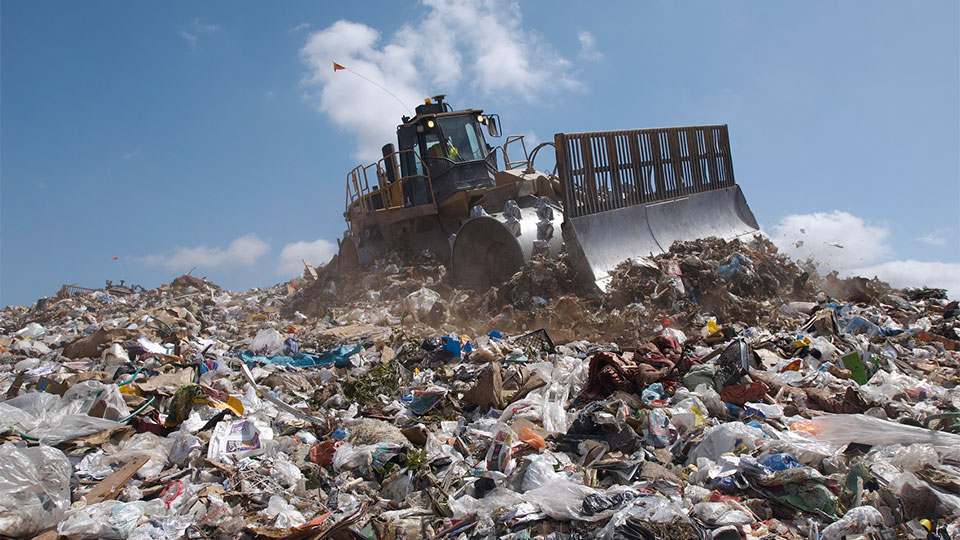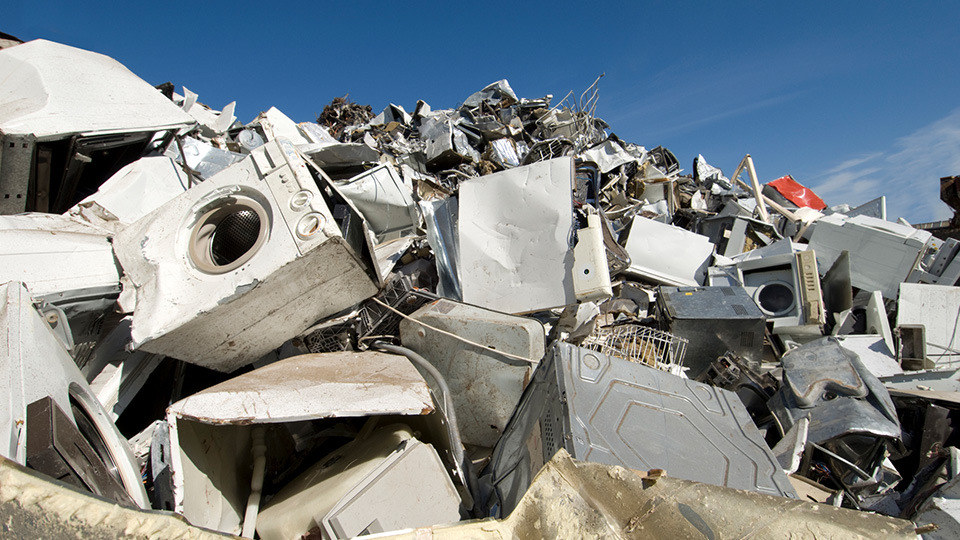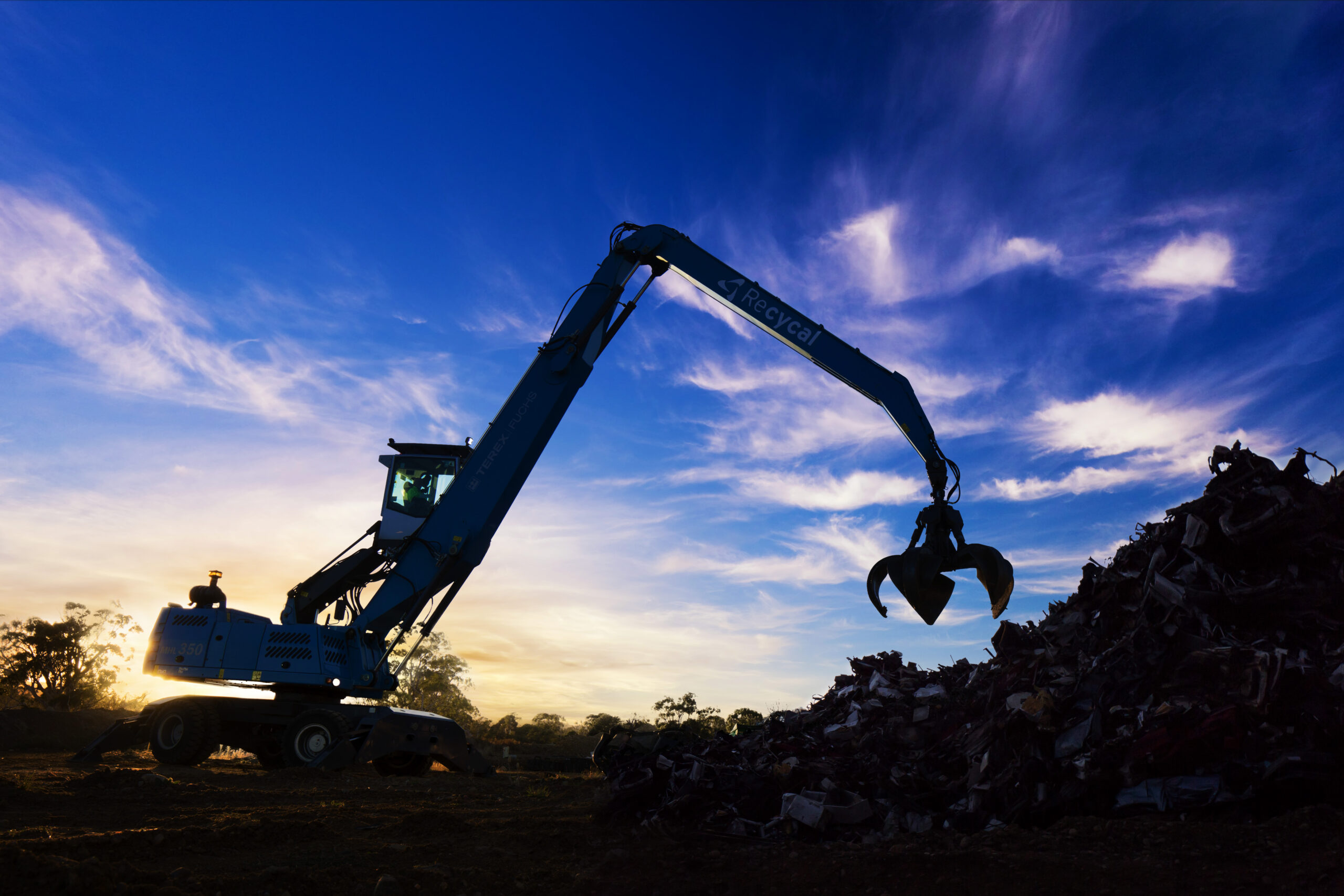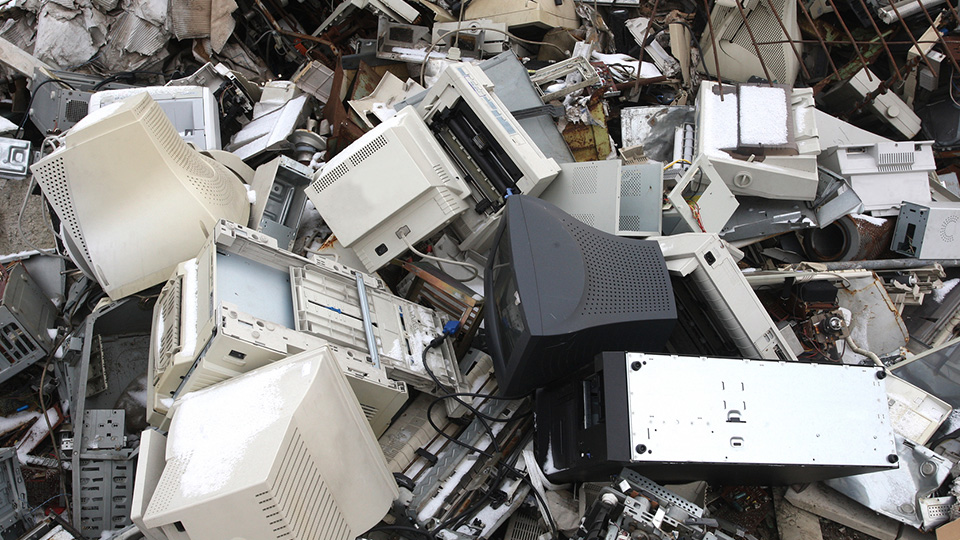The health hazards associated with e-waste are drawing increasing attention worldwide. Following, a recent report from the World Health Organization (WHO), E-waste, if not managed and recycled properly, contain a range of hazardous substances. These include heavy metals like lead, cadmium, and mercury, as well as persistent organic pollutants.
Clearly, these chemicals pose significant risks to human health, particularly for children, who are more vulnerable to toxic exposure.
Despite the risks, less than a quarter of the global e-waste produced is formally recycled. Urban mining valuable, finite resources from e-waste through recycling has become an essential strategy. When done correctly.
This process not only reduces environmental harm, but when recycling is done the right way we are able to recover valuable resources. Importantly, these can be reused in the manufacturing process, reducing the need to mine for virgin resources.
The Dangers of Improper E-waste Disposal
Electronic devices contain a variety of toxic substances that can pose significant hazards if not disposed of properly. The WHO has highlighted several unsafe practices observed at e-waste sites worldwide, including
- Landfilling along with regular waste
- Dumping on land or in water bodies
- Manual disassembly of equipment
- Opening burning or heating
- Scavenging
- Acid baths or acid leaching
- Stripping and shredding plastic coatings
Without a doubt, these activities can release harmful pollutants into the air, soil, water, and even household dust. Open burning and chemical leaching are particularly dangerous, releasing persistent toxic substances that significantly threaten human health and the environment.
In response, the WHO has called for decisive action to protect communities, recommending steps such as:
- Firstly, adopting and enforcing high-level international agreements
- Secondly, developing and implementing national e-waste management legislation that prioritises public health
- And finally incorporating health protection measures into existing environmental regulations
Australia’s E-waste Challenge and Opportunities
In Australia the recycling of e-waster is becoming more prominent. High population growth as well as infrastructure building is putting more stress on our recycling resources. The need for government intervention is important to get the funding and legislation in place, so safe and efficient recycling can be carries out.
In Australia, e-waste recycling is gaining prominence as population growth and infrastructure development place increasing strain on existing recycling resources. According to recent figures, Australia recycles only 22.3%(Global E-waste Monitor 2024) of its total electronic waste, a statistic consistent with global trends and highlighting the scope of the problem.
The need for government intervention is important to get the funding and legislation in place, so safe and efficient recycling can be carried out.
One significant step forward is the ban on e-waste to landfill in Western Australia (WA). Effective from 1st July 2024. This decision aims to improve e-waste management and promote recycling. WA’s local government agencies are working to prepare the necessary infrastructure to comply with this ban.
WA Ban from July 1st
Local government agencies in WA have been working to get their infrastructure and systems in place to meet the legislative requirements.
According to Doug Rowe from the Ecocycle group of companies. “The cost of the scale up will be borne by ratepayers unless the industry can achieve a reasonable return from the NTCRS model and efficiently extract those rare minerals used in electronic items”. “Continuing to allow operators to cut corners and flaunt the laws which government struggle to regulate is one of the major issues facing the industry.”
“We know that to meet the required efficiency standards requires high levels of capital investment which government and regulatory authorities must understand and support”. Doug said. “We need a reasonable return to undertake the investment. ‘Meeting the social, health and environmental needs of the community must be achieved through a sustainable system where we can extract the materials profitably. “The collection and recycling process must make economic sense”
Eco E-Waste: Leading the Charge
Eco E-Waste, part of the Ecocycle Group, plays a pivotal role in Australia’s e-waste recycling efforts. It is one of the five co-regulated organisations under the National Television and Computer Recycling Scheme (NTCRS) to provide responsible recycling services for in scope E-waste – including computers, laptops, TVs, peripherals etc. The schemes objectives are to reduce waste to landfill, in this case electronic waste (E-waste), increase the recovery of reusable materials in a safe, scientific and environmentally sound manner.
Specialising in downstream processing, Eco E-Waste uses advanced recycling technologies to handle metals, batteries, mercury, and plastics. This makes Eco E-Waste a key player in Australia’s efforts to address the e-waste challenge while extracting valuable resources through urban mining. Eco e-waste with its national presence is working to attain recovery rates of up to 90% and thereby divert the e-waste from landfill into valuable commodities.






